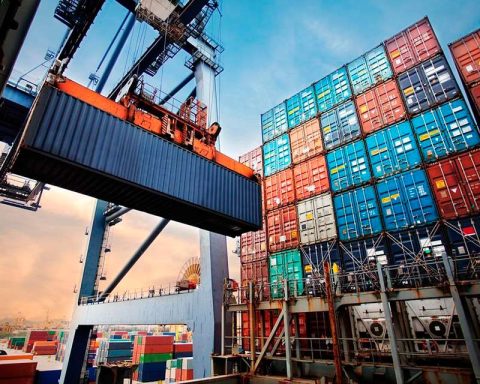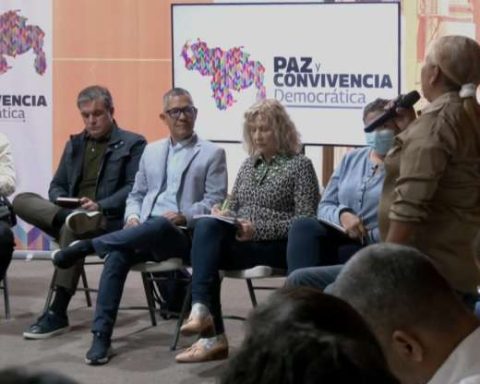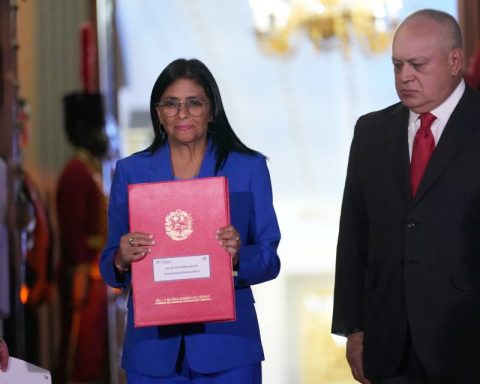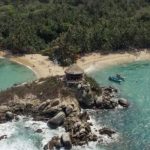the life of us presented on June 11 the animated documentary feature “Roads to nowhere”, a piece that brings together six stories of what they called “failed migration”; directed by Héctor Torres and with the participation of actress Rossana Hernández
Migration has many faces. Today Venezuelans may have seen all of them – or almost all of them – and possibly those who have left the country in the last five years have come across the harshest and most unfortunate.
roads to nowhereanimated documentary feature film the life of us (LVN), the most recent work of the organization dedicated to promoting memory; brings together six stories of what they called “failed migration.”
“Six edges of the hardest things that have happened to migrants, to the people who have left in recent years, between 2015 and 2022. These stories spanned the universe to tell about that migratory process of those who are not doing so well and/or those who unfortunately do not arrive,” explains Héctor Torres, co-founder of LVN, director and screenwriter of the film.
*Read also: Disappearing at sea: a search without a compass
More of 7.2 million Venezuelans have left the country, according to data from the United Nations Interagency Coordination Platform (R4V). The Venezuelan migratory wave is the second largest external displacement crisis in the world, highlights the UN Refugee Agency (Acnur). Between January and June 2023, 51% of the people who crossed the Darién jungle were Venezuelans, Panama reported.
María Daniela and María Fernanda Camacho, Jaiglenis Guedez, Jhonny Romero, Freddy Lira, José Manuel Rivas and Silverio Colmenares are part of those seven million, they are also the stories that make up Roads to nowhere.
«There are seven million Venezuelans abroad, it is such a large number that it has become an abstraction. Migration is one of the biggest duels that we Venezuelans have. When a third of the population is outside we are all in mourning, because whoever is not outside is missing someone from the inside and that is one of our great issues as Venezuelans; that because of our resilient nature we try not to talk about it. With this work we wanted to bring that issue to public opinion abroad as well as here. That we returned to this topic and it seemed to us that the audiovisual documentary was a very powerful tool”, says Torres.
Millions of Venezuelans have left the country, in an unprecedented migratory wave in our contemporary history, settling in the most diverse corners of the world.
Some just didn’t make it.#RoadsToNoParthttps://t.co/SVoPcEJQRq pic.twitter.com/qGq7eGCtms
— The Life of Us (@lavidadenos) July 18, 2023
back to the documentary
roads to nowhere It is LVN’s second work in audiovisual documentary, but the first in animation, and it is the third special in which they address the journey of migrants: they are preceded by The Displaced and the confined.
«Our intention is to tell the stories of Venezuelans in all possible formats. When we considered addressing these stories, we were clear that we wanted to do it in a documentary, to take advantage of the experience that left us a complicated word. At first it was not going to be encouraging, but we began to see practical issues and difficulties that made us rethink the matter. The animated documentary allows us to put a layer of representation, between the spectator and the person, a sieve of plastic expression to the reality that we wanted to tell.
The feature film began to take shape approximately nine months ago, when Torres and Albor Rodríguez (co-founder of LVN) summoned the journalists Heberlizeth González and Edy Pérez to conduct a survey of cases.
«They (González and Pérez) brought us to the writing table 12 stories of ‘failed migration’. The term was imprecise, but it helped us to understand what we were looking for. The editorial team then decided which ones covered the topic. Then came the script, which is practically the result of deleting the questions that were asked of the interviewees and securing the arc. There was great respect for what the interviewees said, how they said it, their voices, their ways of speaking; to give it credibility”, recalls Torres.
The actress and theater director Rosanna Hernández (Deus Ex Machina) was in charge of the casting and acting direction, and the original music of the feature film –available on the channel Youtube of the life of us– is by Santiago Zamora and Paola Di Girolamo.
Carlos L. Machado, Walther Sorg, Robert Dugarte, Luis Esteves, Ivanna Balzan, Celina Guerra, Dira Martínez Mendoza and Carmen Helena García were the illustrators and animators who worked on this piece. The art direction is by Octavio Villegas and the photography stop motion by Eduardo Burger.
Other spaces for these stories
roads to nowhere premiered on June 11 at the Cultural late night, located in Las Mercedes, Caracas. Then it has had two more screenings, in the Sala Cabrujas de Chacao and at the Andrés Bello Catholic University (UCAB).
«During the presentation I was very impressed to feel that people cried seeing the stories, that they were moved. When I left they told me: ‘I have no words, I have to process what we just saw’. Feeling that we can take this to a format where more people can see it has been wonderful, because it is a way of continuing to do what we do: record the Venezuela of today seen from the people. We are telling some painful stories, but it is important that we do so, “says Torres.
The organization plans to bring roads to nowhere to different festivals and film shows, national and international; also organize other cineforos in different spaces, to keep track of him –or request a screening– here we leave his social networks: @lavidadenos on Twitter and Instagram
Post Views: 80















